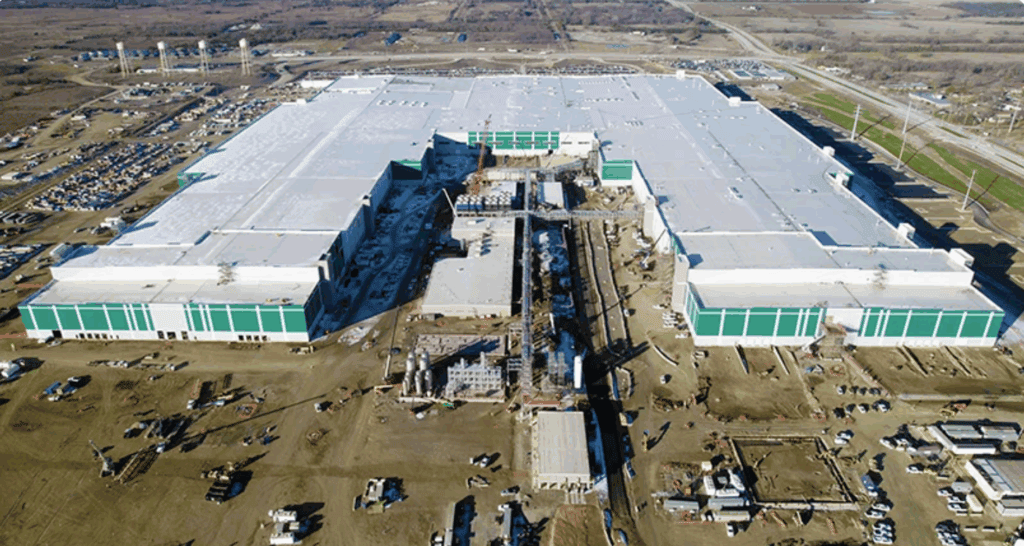Panasonic’s $4 Billion Battery Factory Set to Transform U.S. EV Supply Chain

This state-of-the-art facility will ramp up domestic EV battery production, helping reduce reliance on overseas suppliers and supporting faster, more sustainable vehicle manufacturing.
By: IL Editors | August 11, 2025
Panasonic is making a major move in electric vehicle (EV) manufacturing with a $4 billion investment in a new battery factory located in DeSoto, Kansas. This$4 billion state-of-the-art facility—at 4.7 million square feet, it is roughly the size of 225 football fields—will significantly increase the domestic production capacity of EV batteries, a crucial component in the booming U.S. electric vehicle market. The plant is expected to create thousands of jobs and strengthen the region’s position as a key hub for EV manufacturing. It is the company’s second EV battery production site in the region, following the Nevada Factory, which has been operating since 2017 with the current annual capacity of approximately 41 GWh.
For supply chain and logistics professionals, Panasonic’s investment signals a critical shift toward reshoring and localizing supply chains for EV components. Producing batteries closer to automotive manufacturing hubs helps reduce lead times, lowers transportation costs, and lessens vulnerability to international disruptions—a growing concern in today’s global logistics environment.
Key Takeaways:
-
Increased Domestic Capacity: The new plant will boost U.S. battery production, reducing reliance on foreign suppliers and improving supply chain resilience.
-
Localized Supply Chains: Bringing battery manufacturing closer to OEMs allows for more streamlined logistics, faster delivery, and reduced freight costs.
-
Growing Demand for Specialized Logistics: Handling lithium-ion batteries requires specialized warehousing, transportation, and compliance with safety regulations—areas that logistics providers must prepare to support.
-
Strategic Regional Impact: The DeSoto facility positions the Kansas City area as a critical node in the EV supply chain, attracting related suppliers and creating new business opportunities in transportation and distribution. The project is the largest economic development project in Kansas state history.
“The opening of our Kansas Factory marks a major milestone in our journey to scale advanced battery production in the United States,” said Kazuo Tadanobu, CEO of Panasonic Energy at the facility opening last month.
As EV adoption accelerates nationwide, Panasonic’s investment is a clear signal that supply chains must evolve to support sustainable transportation. Logistics and supply chain teams should monitor these developments closely to adapt strategies, optimize routes, and ensure readiness for increased volumes and complexity in battery-related freight.
